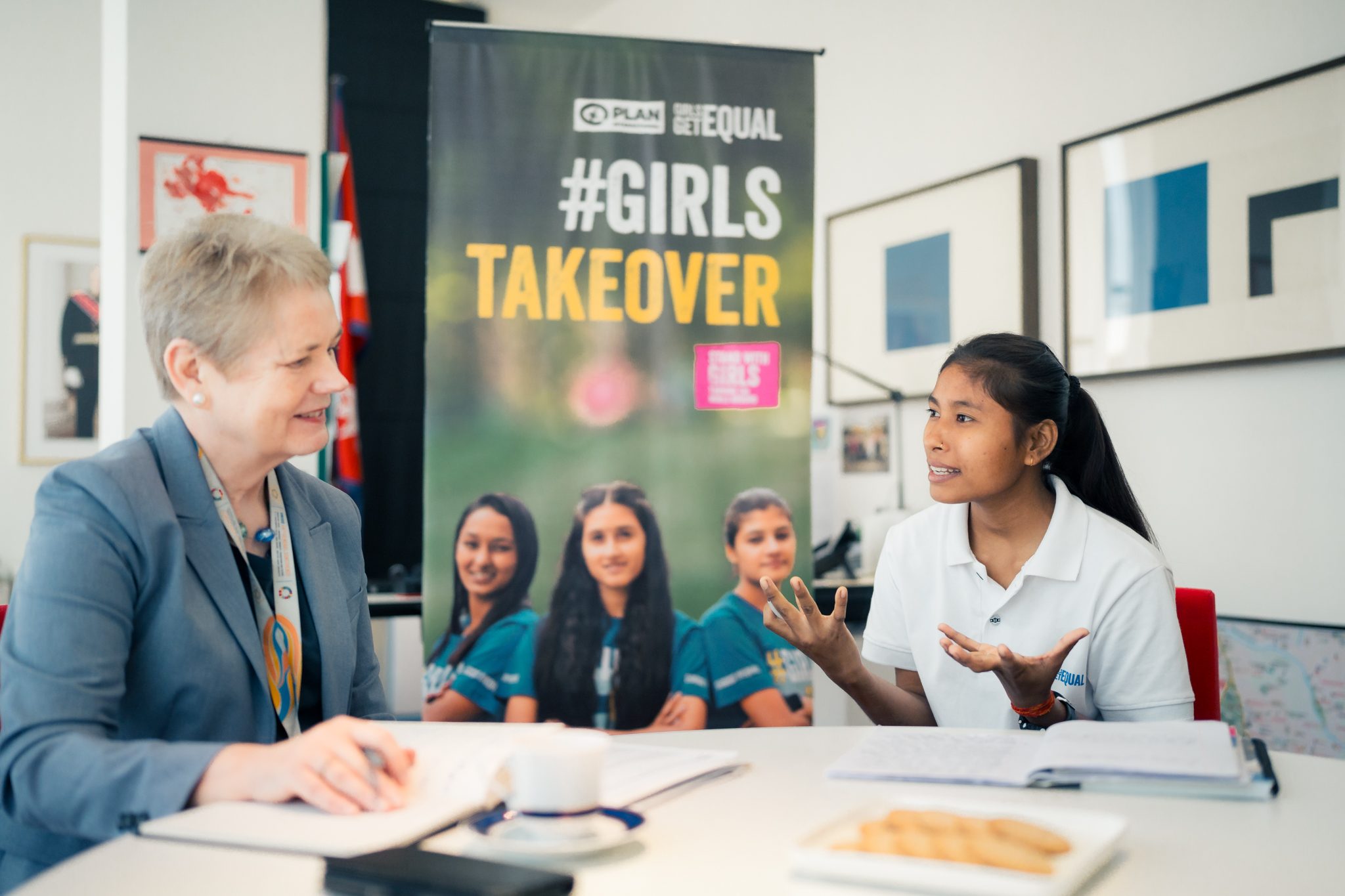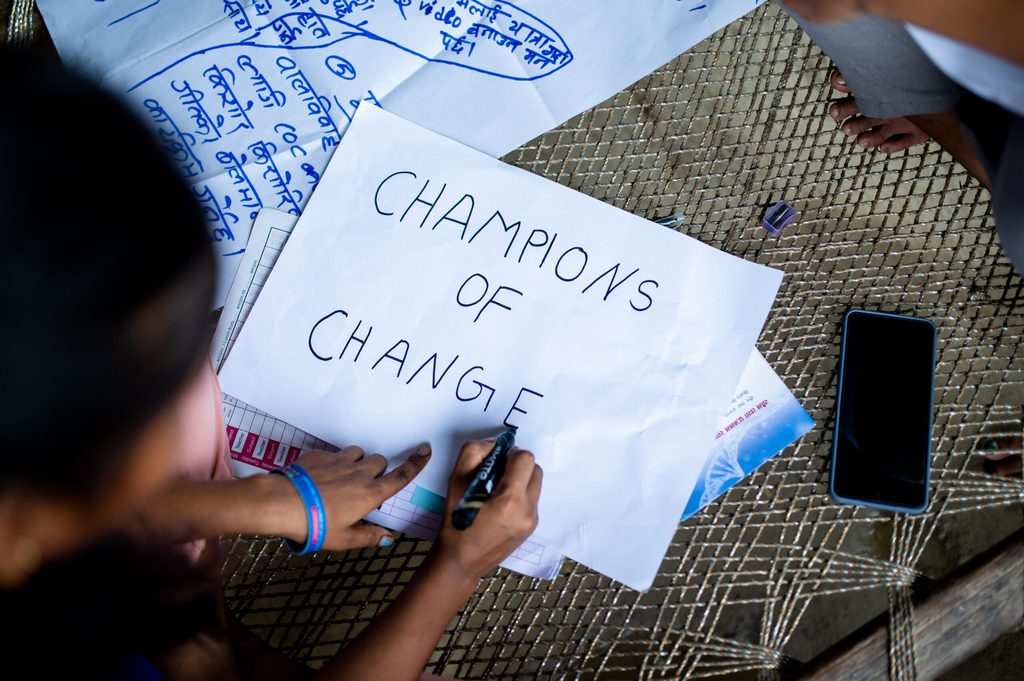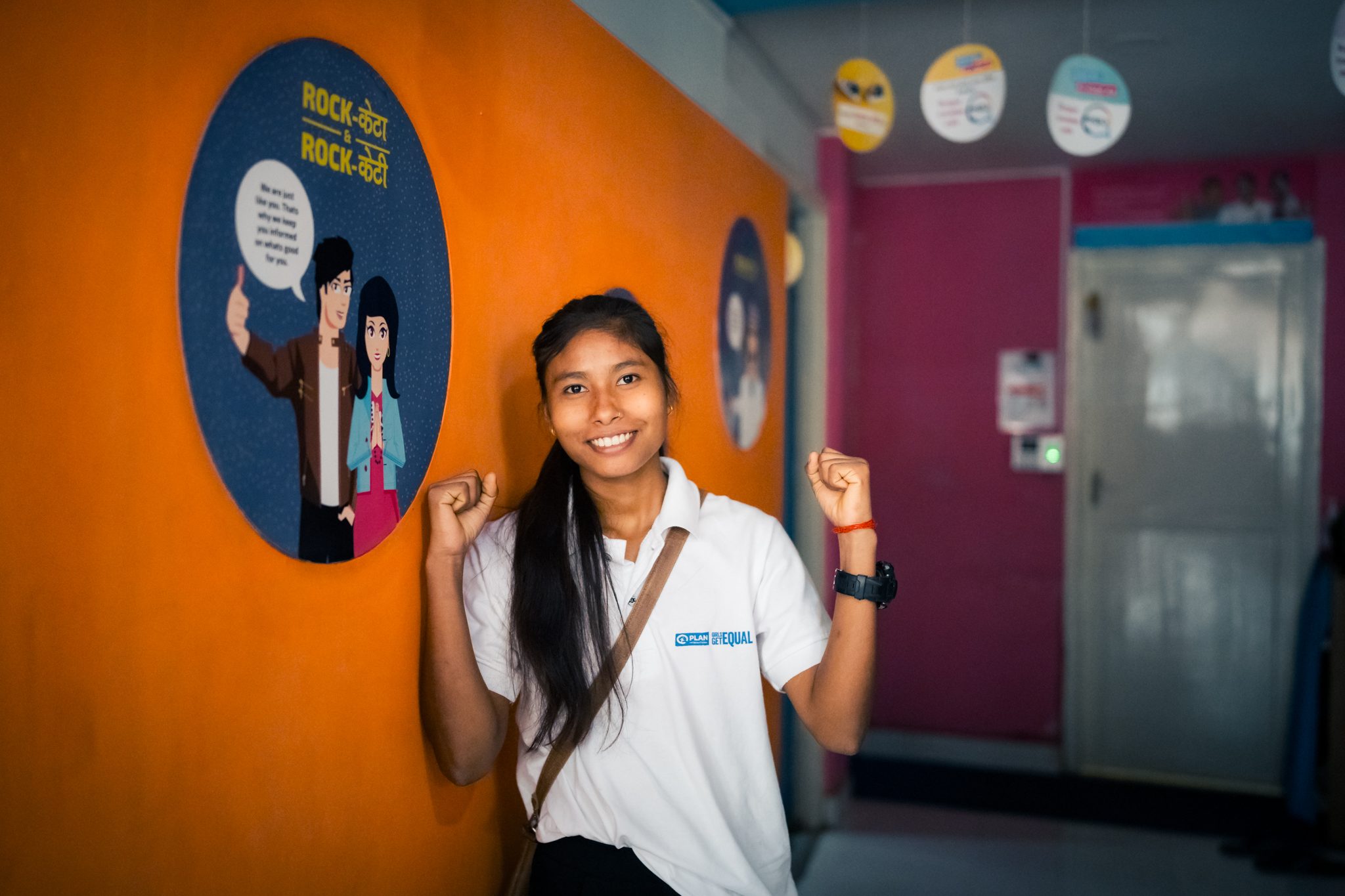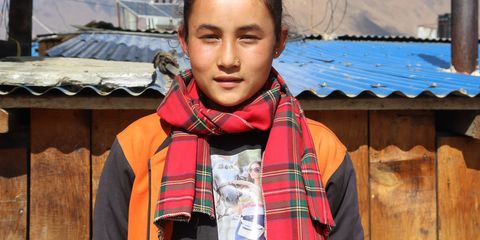Ambassador for a day, Sangita’s journey
Sangita took up the role of Norwegian ambassador for a day and used the opportunity to advocate girls’ rights and speak up about gender inequality.

Sangita journeyed from rural Nepal to take up the post of Norwegian ambassador for the day as part of the Girls Takeovers project for International Day of the Girl. As a young activist for the prevention of early and child marriage and girls’ rights, Sangita’s day as ambassador enabled her to meet with many important political figures. This gave Sangita a platform through which to elevate the voices and views of the young women and girls in her community and advocate for gender equality and girls’ rights, both in her local area and throughout Nepal.
Gender inequality and the expense of education
Sangita, a 20-year-old from rural Nepal, had always nurtured dreams of becoming a lawyer and making a profound impact on gender equality issues, particularly those affecting adolescent girls. However, the road to realising her dreams was fraught with financial hardships that seemed insurmountable.
Hailing from an indigenous community, Sangita knew that pursuing a law degree meant leaving her village and bearing a significant financial burden. Her family’s primary livelihood depended on agriculture, and while they owned a piece of land, their resources were limited. Gender inequality, deeply ingrained in her community, was an ever-present hurdle, affecting decision-making in her household and the broader community.
Sangita noticed that while she was in school, the majority of students were boys. However, as they progressed to college, the number of boys dwindled as they left the village to find work.
She noted, “Even when families are okay with sending their sons away for work at a young age, they are not as accepting when it comes to their daughters. Daughters have to fight for the opportunity to step outside their homes.”
In Bardiya, the prevalence of child marriage remains a reality. Economic hardships often compel families to marry off their young daughters prematurely. Meanwhile, sons, upon reaching the age of 18, leave the village in search of employment to support their families. Unintended pregnancies are all too common, and many of Sangita’s friends were married off at a tender age. In her school, she noticed a stark gender imbalance, with the majority of students being boys. As they progressed to college, the number of male students further dwindled as they ventured to distant districts in search of job opportunities. Girls, on the other hand, had to struggle to secure even a semblance of independence.

Sangita takes over: ambassador for a day
As a part of the Girls Takeover project for International Day of the Girl, Sangita was appointed Norwegian ambassador for a day. This opportunity enabled her to challenge deeply ingrained gender stereotypes, particularly within her rural village, and show her unwavering commitment to ending child marriage.
In her role as ambassador at the Norwegian Embassy, Sangita didn’t hold back. She candidly shared her experiences, highlighting the challenges she’d faced when attempting to address gender equality in her community.
Sangita spoke about how many women were constantly toiling in the fields, leaving them with little time for engagement in gender equality discussions. And that when she had first begun advocating for gender equality within her local community the response she often received was, “Talk to the male members of the household.”
Sangita shared how her efforts had been met with resistance and skepticism, so she’d (in collaboration with the BEE Group and local government authorities) started organising various awareness campaigns, including street dramas, to stress the importance of gender equality and ending child marriage.
H.E. Torun Dramdal, Ambassador, Norwegian Embassy says, “Achieving gender equality is critical to our future. Education is a right – for all children and young people. Girls and women who have been in school live healthier lives, have higher incomes, and significantly increase the prospects of their children getting an education. Women who are educated also play a stronger political and economic role. We cannot meet the challenges our world is currently facing without the full and equal participation of girls and boys.”
Youth-friendly sexual and reproductive health and rights services

During her #GirlsTakeover experience, Sangita also had the opportunity to visit a youth clinic operated by Marie Stopes International Nepal. There, she interacted with the team, learning about their commitment to providing youth-friendly sexual and reproductive health and rights services. The introduction to the menstrual cup opened her eyes to innovative solutions, even if she initially thought it was designed to halt menstruation. Sangita now aspires to promote eco-friendly menstrual products to reduce the financial burden, though she acknowledges the potential cultural stigma attached to their use in her community.
Leadership meetings
Sangita’s journey continued as she visited the United Nations Population Fund (UNFPA) Nepal’s office. She met UNFPA’s country representative, Ms. Young, and her team. Young introduced her to the young staff and shared information about her work with youth advocates from various districts, all working towards advocating for sexual and reproductive health and rights. Young emphasised the need to invest in girls and strategically create an environment for their growth by mentoring and enhancing their capacity.
Young expressed, “This initiative of giving a young girl like Sangita a one-day leadership opportunity is truly innovative. We need to invest in girls and strategically create an environment for them by mentoring and enhancing their capacity.”
Sangita’s role as an ambassador also provided her with the opportunity to visit the Finland Embassy, where she expanded her understanding of international relations and had the privilege of meeting Finnish Ambassador H.E. Riina-Riikka Heikka.
Sangita’s visit to the Finland embassy was met with a warm and hospitable welcome from Ambassador H.E. Riina-Riikka Heikka. The diplomatic encounter allowed her to gain insights into Nordic countries and the friendly relations shared between Finland and Norway.
The journey continues
During her time as ambassador Sangita’s experiences and newfound knowledge have strengthened her commitment to her cause. She stands as an example to other young girls in her community, demonstrating that with determination and support, they too can overcome cultural barriers and become agents of positive change. Sangita’s day as an ambassador was not just a glimpse into a different world but an empowering step toward a brighter future for all girls and women.
Sangita’s journey serves as a testament to the transformational power of education, awareness, and the unwavering determination of young girls. Through programmes like Champions of Change and Girls Takeover, Sangita’s story demonstrates that empowering girls today can ensure a brighter and more equitable future for all.


